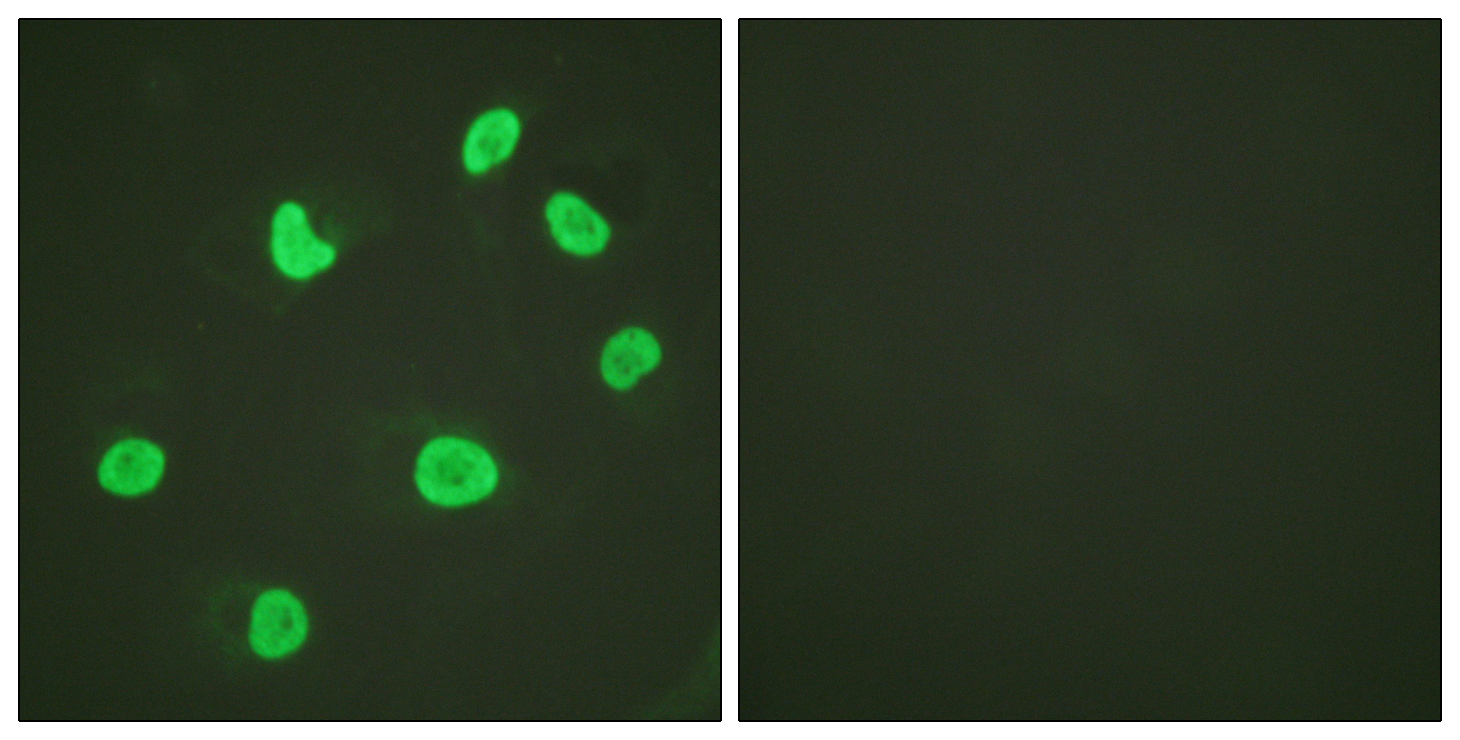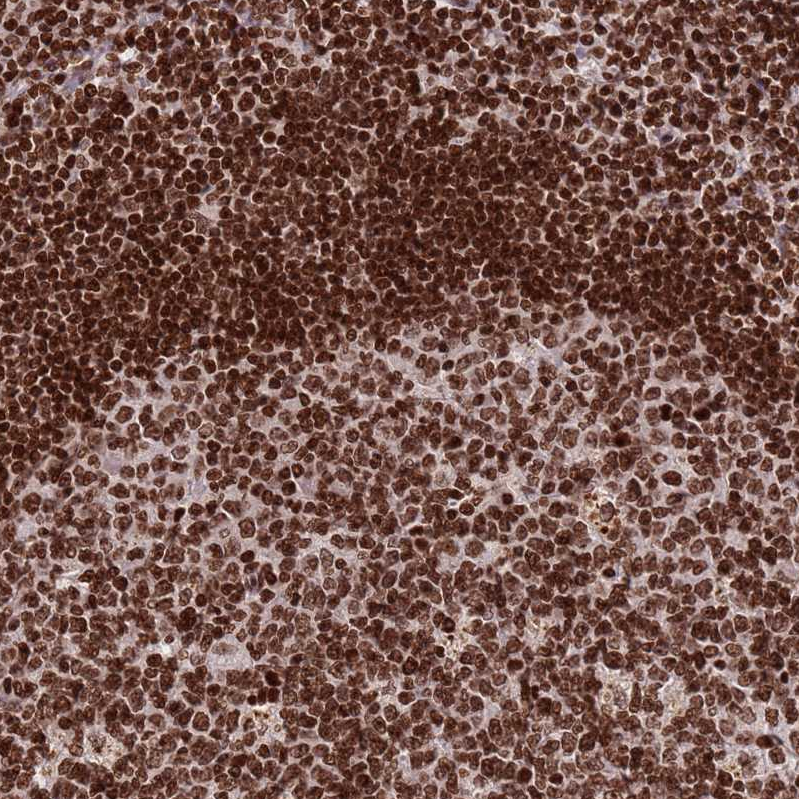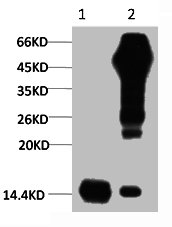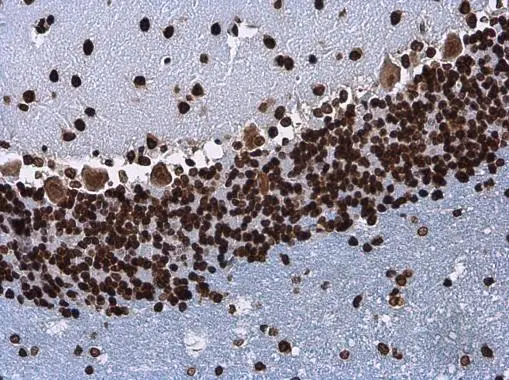
All lanes use the Antibody at 1:5K dilution for 1 hour at room temperature.
Anti-Histone H3.3 H3F3A Rabbit Monoclonal Antibody
M06819
ApplicationsImmunoFluorescence, Western Blot, ImmunoCytoChemistry, ImmunoHistoChemistry
Product group Antibodies
ReactivityHuman, Mouse, Rat
TargetH3-3A
Overview
- SupplierBoster Bio
- Product NameAnti-Histone H3.3 H3F3A Rabbit Monoclonal Antibody
- Delivery Days Customer9
- ApplicationsImmunoFluorescence, Western Blot, ImmunoCytoChemistry, ImmunoHistoChemistry
- CertificationResearch Use Only
- ClonalityMonoclonal
- Clone IDEBF-8
- Gene ID3020
- Target nameH3-3A
- Target descriptionH3.3 histone A
- Target synonymsBRYLIB1, H3.3A, H3F3, H3F3A, histone H3.3, H3 histone family member 3A, H3 histone, family 3A
- HostRabbit
- IsotypeIgG
- Protein IDP84243
- Protein NameHistone H3.3
- Scientific DescriptionBoster Bio Anti-Histone H3.3 H3F3A Rabbit Monoclonal Antibody catalog # M06819. Tested in WB, IHC, ICC/IF applications. This antibody reacts with Human, Mouse, Rat.
- ReactivityHuman, Mouse, Rat
- Storage Instruction-20°C
- UNSPSC12352203
References
- Liu TC, Li HX, Wan YX, et al. METTL14-mediated upregulation of lncRNA HOTAIR represses PP1α expression by promoting H3K4me1 demethylation in oxycodone-treated mice. CNS Neurosci Ther. 2024,30(7):e14830. doi: 10.1111/cns.14830Read this paper
- Yang X, Du Q, Wang X, et al. Porcine circovirus type 2 infection inhibits macrophage M1 polarization induced by other pathogens via viral capsid protein and host gC1qR protein. Vet Microbiol. 2023,285:109871. doi: 10.1016/j.vetmic.2023.109871Read this paper
- Wang Z, Chen J, Zhang QG, et al. Porcine circovirus type 2 infection inhibits the activation of type I interferon signaling via capsid protein and host gC1qR. Vet Microbiol. 2022,266:109354. doi: 10.1016/j.vetmic.2022.109354Read this paper
- Kusi M, Zand M, Lin LL, et al. 2-Hydroxyglutarate destabilizes chromatin regulatory landscape and lineage fidelity to promote cellular heterogeneity. Cell Rep. 2022,38(2):110220. doi: 10.1016/j.celrep.2021.110220Read this paper
- Wu X, Wang Z, Qiao D, et al. Porcine circovirus type 2 infection attenuates the K63-linked ubiquitination of STING to inhibit IFN-β induction via p38-MAPK pathway. Vet Microbiol. 2021,258:109098. doi: 10.1016/j.vetmic.2021.109098Read this paper











